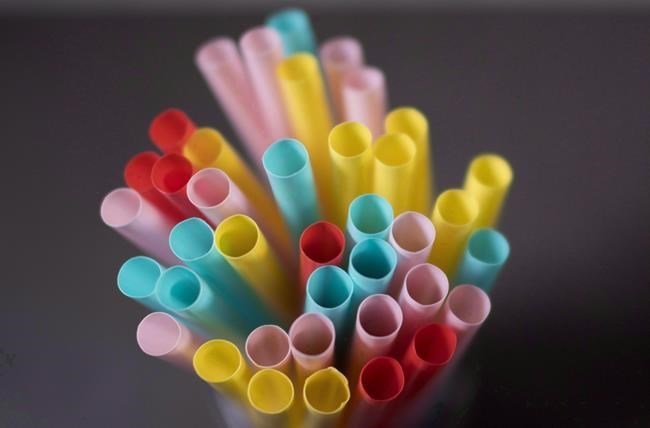EDITOR'S NOTE: OrilliaMatters is partnering with Sustainable Orillia to publish a weekly tip. Check back here every Tuesday evening for a new tip. For more information, visit the Sustainable Orillia website.
The Canadian government recently announced it intends to ban plastic bags and other single-use plastics across Canada by the end of 2021.
The ban includes straws, drink stirrers, six-pack soda can rings, utensils, and food containers. This ban is part of Canada's commitment to achieving zero plastic waste by 2030.
“Plastic pollution threatens our natural environment. It fills our rivers or lakes, and most particularly our oceans, choking the wildlife that lives there. Canadians see the impact that pollution has from coast to coast," said Jonathan Wilkinson, Canada’s Minister of Environment and Climate Change.
The Canadian government has estimated that three million tons of plastic are wasted each year, and of this only nine percent is recycled. This is "the equivalent of 570 garbage bags full of plastic every minute, every day.”
While it is understandable that the Canadian government would give businesses and industry the opportunity to adjust to the banning of these materials, one has to wonder at the timidity of this first move by the Canadian government.
Where, for example, is the ban on single-use water bottles? In Canada, studies show, we consume two billion water bottles per year (about 5.3 million per day) and about 22 million pounds of plastic makes its way into the Great Lakes every year.
And does the ban include Keurig single-use coffee pods? Tim Horton takeout coffee cups? The plastic wrap around two peppers at the grocery store? The plastic wrap around single cookies or a piece of brownie for sale at your neighbourhood convenience store? The plastic containers around olives, blueberries, strawberries—and so many other fresh fruits and vegetables?
Take a look around you right now at your place of business or in your kitchen.
Notice how dependent we have become on plastic of all kinds. Records show that, in 2016, plastic companies produced 335 million metric tonnes of plastic—50% of which went to single uses. It is likely that that number has increased each year since.
We also now know that one of the ingredients of plastic—bisphenol A or BPA—is harmful to humans in a variety of ways. We know that plastic can be found in each and every one of us — and many of us are adding more to our bodies every time we drink from a plastic bottle or eat from a plastic take-out tray.
The Canadian government is saying that, by the end of next year, some uses of plastic will be prohibited. But there is plenty of evidence to suggest that this ban is totally inadequate if we are concerned about the health of the planet, of its oceans, and of the human population.
What can each of us do? First of all, take action for yourself. All of us tend to use plastic daily without really thinking about it. Think about it today—and every day. Find ways to live without single-use plastics.
And speak up. Is your grocery store wrapping ever more veggies in plastic? Using more and more bags and plastic containers for the fruits on the shelves? Let the management know that you’re not impressed with their disdain for the planet — not to mention the health of their customers (that BPA, you know).
There is good reason to believe our planet — and the living things on it, including in our lakes and oceans and including us — will eventually drown in plastic if we don’t start taking steps to end its use.
By 2030, says the Canadian government? Should we wait that long?
